This is a very old question, but here's how you'd do it in VS2013.
Adding a constant in the Project Properties doesn't work for me.

What does work is to open the .csproj file for your project, find your configuration name, and add something to the "DefineConstants" section.
<PropertyGroup Condition="'$(Configuration)|$(Platform)' == 'BO4_Production|AnyCPU'">
<OutputPath>bin\BO4_Production\</OutputPath>
<DefineConstants>TRACE;BUSINESS_OBJECTS_4</DefineConstants>
<Optimize>true</Optimize>
<DebugType>pdbonly</DebugType>
<PlatformTarget>AnyCPU</PlatformTarget>
<ErrorReport>prompt</ErrorReport>
<CodeAnalysisRuleSet>AllRules.ruleset</CodeAnalysisRuleSet>
<Prefer32Bit>false</Prefer32Bit>
</PropertyGroup>
In this example, whenever I'm in VS2013 and I change my Configuration to "BO4_Production", the source code will immediately reflect this, and any sections will reflect this:
#if BUSINESS_OBJECTS_4
// This is the URL of the Business Objects 4 REST services
string BaseURL = "http://BO3Server:6405/biprws/logon/long");
#else
// This is the URL of the Business Objects 3 web services
string BaseURL = "http://BO3Server:8080/dswsbobje/services/Session";
#endif
It's strange that this seems to be the only way to make a #define kick in, just by changing the configuration.
A few months later...
Actually, scrap that. Even in VS2015, I can add my conditional symbol in either the "Build" tab or directly in the .csproj file, but some of the projects in my solution just get it wrong. For example, they have my symbol defined, when for that configuration, it shouldn't be defined. (I checked the Configuration Manager window, and it is all setup correctly, but VS2015 just doesn't get it right sometimes..)

